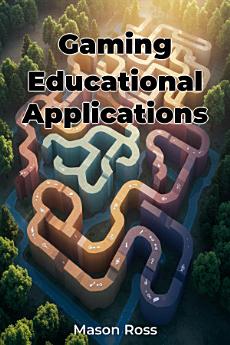Gaming Educational Applications
About this ebook
It highlights that thoughtfully designed games, when integrated into curricula, can lead to demonstrably improved learning outcomes compared to traditional teaching methods. This academic yet accessible work provides a historical and theoretical context for game-based learning, tracing its evolution and grounding it in established learning theories like constructivism.
The book emphasizes the importance of measurable learning outcomes, advocating for rigorous assessment methodologies, including pre- and post-testing and in-game analytics, to evaluate the impact of educational games.
It progresses from foundational concepts to case studies to a model for designing, implementing, and measuring the impact of game-based learning interventions, providing educators and developers with practical guidance.








